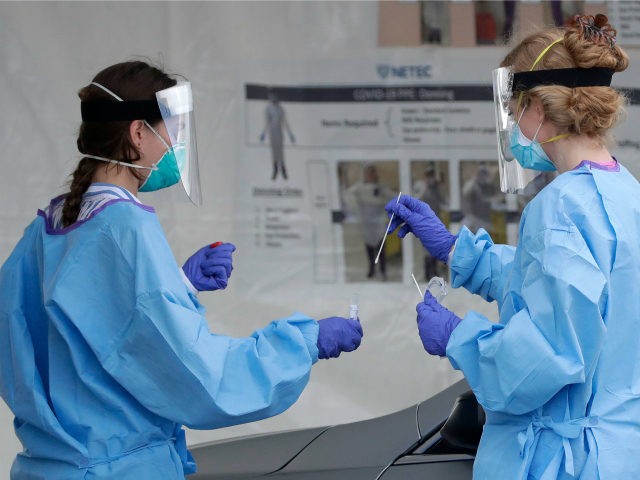ROME — Italy has announced the production of a new, fast-acting saliva test that detects the presence of the coronavirus in minutes, Italian media revealed Wednesday.
A team at the University of Insubria and the ASST dei Sette Laghi, including a dental researcher and a biochemist, developed the rapid salivary test (TRS), which passed clinical trials and is now seeking state certification for widespread production.
The TRS works in a similar way to a pregnancy test: a few drops of saliva diluted with a special solution are applied on a small strip of absorbent paper and the result is obtained within three to six minutes with one band appearing if the subject is negative, two bands if the result is positive.
Authorities are hopeful that the TRS will be useful in phase 2 of the lockdown, aiding in the safe reopening of social and productive activities.
The idea was the brainchild of Lorenzo Azzi, researcher of Dentistry, and Mauro Fasano, professor of Biochemistry, who worked together in the Insubria laboratories in Busto Arsizio in coordination with fellow researcher Tiziana Alberio.
Once the test was developed, clinical trials were carried out in the Microbiology laboratory at the Circolo di Varese Hospital, where in just over two weeks, from 16 April to 4 May, researchers examined the saliva samples of 137 subjects.
Each saliva sample was evaluated with two separate tests: the known molecular test and the new, experimental one, with results that verified the reliability of the TRS. Those testing negative can be certain of not being infected with the virus, while those testing positive will be subjected to a second test.
“The rapid test is simple and safe to use and allows for immediate first-level screening of the population,” said Lorenzo Azzi. “The aim is to identify the positive subjects, especially the asymptomatic carriers of the virus, to be sent subsequently for diagnostic testing based on molecular methods, which require longer processing times in the laboratory.”
The University of Insubria has drawn up an agreement with NatrixLab of Reggio Emilia and the company is already working to quickly supply several prototypes, which will be validated in similar fashion with which the hospital experimentation took place.
“Our saliva test is so simple that it can really be used by anyone, but certification for autonomous use requires a very long time, while only 2 weeks are needed to receive certification for use under medical supervision,” Fasano said.
“So the test, like the serological one, will initially be managed by a healthcare worker, who will work with police for checks, for example, or with a company that wants to have employees perform the examination,” Fasano said. And we hope it can also be made available to general practitioners.”

COMMENTS
Please let us know if you're having issues with commenting.